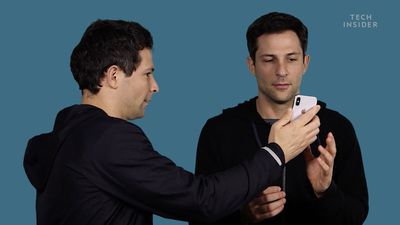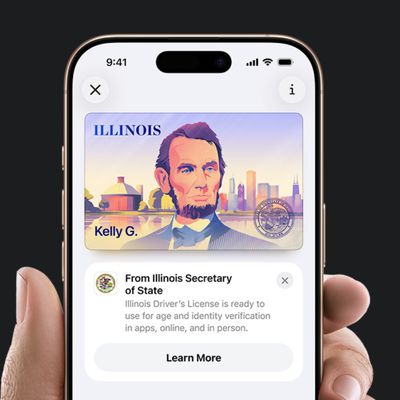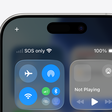Now that the media has had hands-on time with the iPhone X, the new smartphone is being put through its paces in a few areas, including Face ID. Since the iPhone X's new biometric security system has already been at the forefront of much debate and skepticism, most review and hands-on coverage has tried to fool Face ID, including Mashable and Business Insider running a "twin test" to see if one iPhone X unlocks for identical twins.

Mashable ran its test by asking two different sets of identical twins to try to unlock the iPhone X, first by having one twin register their face in Face ID and confirm it unlocks for them. Then, the second twin held up the iPhone X to their face -- not registered in the device -- to see if they could get into their sibling's iPhone. In both instances of Mashable's twin test, the iPhone X successfully unlocked using the face of the non-registered twin, fooling Face ID completely.
With both sets of twins, the other twin unlocked the iPhone X, even though neither one had registered his face with Face ID on the iPhone X. With the Franklin twins, we had both brothers remove their glasses and had the other brother register. Again, Face ID failed to tell the difference.
Look, Apple never claimed Face ID was perfect and, in my tests, it could not be fooled by photos or videos of my registered face. Still, these results do not bode well for all the identical twins out there, to say nothing of triplets and quintuplets.
Interestingly, Business Insider's results contrasted directly with Mashable. In its test, Business Insider first had one twin register his face and then simply try to fool Face ID by wearing a hat, glasses, and a scarf, and Apple's security system unlocked every time. Then, his identical twin brother raised the iPhone X in front of his face, but the device repeatedly failed to open and was apparently able to distinguish between the two brothers.
I was pretty shocked that the iPhone X could really pick apart the details between me and my brother considering some of our own family members can’t tell us apart. So, yeah, it was a pleasant surprise knowing that Brian can't break into my iPhone X and I can’t break into my brother's.
It's worth noting that Apple itself admitted that Face ID may not be able to distinguish between identical twins during the iPhone X unveiling on September 12. Phil Schiller said at the time: "The chance that a random person in the population could look at your iPhone X and unlock it with their face is about one in one million. Of course, the statistics are lowered if that person shares a close genetic relationship with you. So, for example, if you happen to have an evil twin, you really need to protect your sensitive data with a passcode."
Face ID also runs using the smartphone's A11 Bionic chip with a built-in neural engine and Apple has said that it will get smarter over time, so in the future more sets of twins might discover that Face ID more accurately tells them apart from their siblings.




















Top Rated Comments
What's next, a TouchID test with someone who has no fingers?